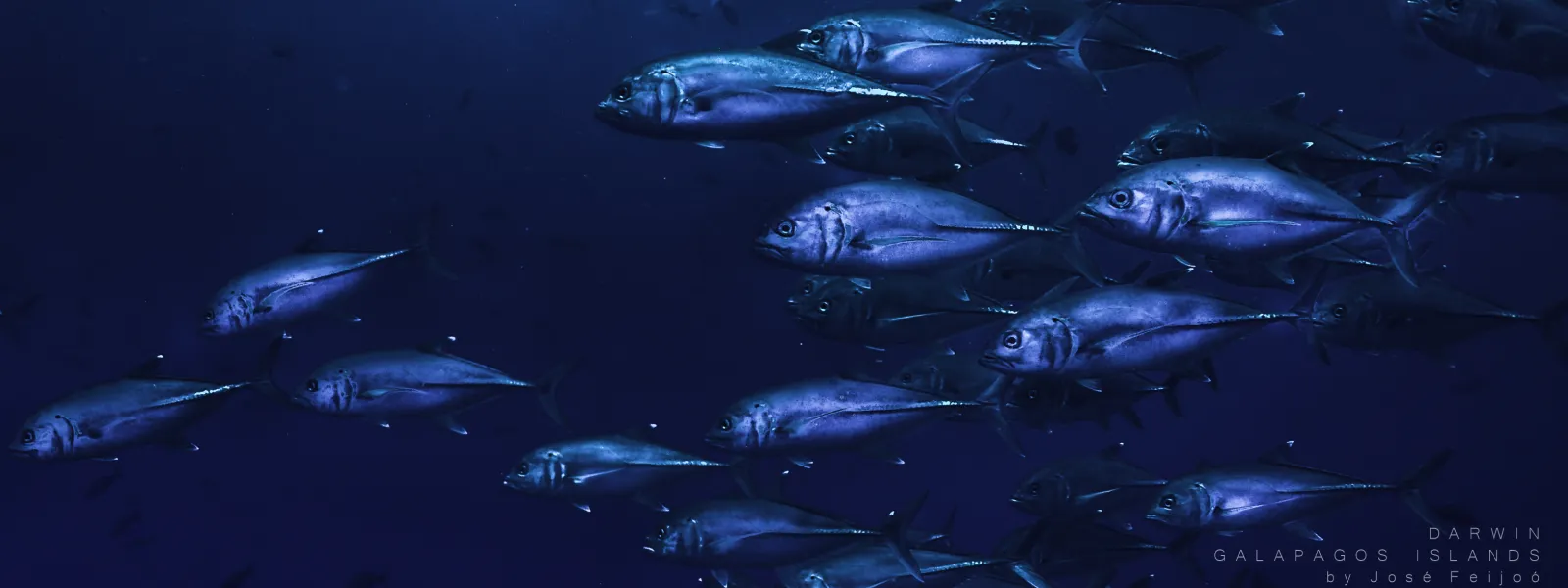
Publications

Moratoriums and bans on fracking: Comparative legislation
Hydraulic fracturing is a technique used to extract nonconventional petroleum products, such as tight gas and shale oil, from deep underground deposits. To release these hydrocarbons, the rock formations in which they are trapped must first be shattered into many small pieces. Hydraulic fracturing, or fracking, thus involves drilling 1000 to 5000 meters into the earth and injecting a high-pressure fluid mix of water, sand and various chemicals to fracture the rock and release the hard-to-reach hydrocarbons. This controversial technique has sparked resistance in many communities, regions, and countries where it is causing serious dangers to public health and the environment. Countries, regions, cities and communities around the world have chosen to prohibit or place moratoriums on fracking through various legal and administrative mechanisms. These fracking bans are driven by a number of concerns surrounding the dangers fracking poses to the environment and public health. We would like to point out the following arguments: Above ground and subterranean water sources, air, and soil in the vicinity of fracking operations are at serious risk of contamination. There remains scientific uncertainty regarding of the magnitude of fracking’s impacts on public health and the environment. Measures put in place by the hydrocarbon industry to prevent the impacts of fracking have not yet been proven effective. Moreover, a “general consensus” among actors in the hydrocarbon industry does not guarantee that fracking operations are safe for humans and the environment. There is a serious risk of contamination of soil and water sources in rural and agricultural areas. Fracking impacts communities’ ways of life, and limits consumer confidence that food and agricultural products grown or produced in areas affected by fracking are safe to consume. Fracking emits significant volumes of greenhouse gases into the atmosphere, exacerbating anthropogenic climate change. Among these gases produced by fracking are large volumes of methane, which traps roughly 30 times more heat in the atmosphere than carbon dioxide. There is a large and growing social opposition to fracking, driven by community organizations and citizen mobilization, demonstrating widespread popular opposition to the technique. Indigenous communities like the Cherokee argue that defending their territories against fracking is essential to their continued survival. Most of the moratoriums and bans on fracking surveyed in this report adopt the precautionary principle, either directly referencing the principle or indirectly alluding to it. For example, most fracking bans are based on the possibility of serious and irreversible harms caused by the extraction technique, or on the scientific uncertainty regarding the magnitude of fracking’s impacts. These measures invoke the precautionary principle, which states that in the event a technique could cause serious or irreversible dangers, or if there is a lack of scientific evidence that a technique is safe, decision makers should adopt proactive measures that protect the health of people and the environment above all. However, various measures to ban or pass moratoriums on fracking did first require exhaustive scientific investigations by government authorities to better understand the risks fracking could cause to public health and the environment. Those studies confirmed the serious risks of hydraulic fracturing, but could not prove with certainty the short and long-term impacts of fracking, nor the efficacy of industry efforts to prevent and mitigate those dangers. In a pair of case studies (in Northern Ireland and Wales) government authorities used the precautionary principle to establish a burden of proof, placing the onus on the hydrocarbon industry to clearly and scientifically demonstrate that the proposed fracking activities would not cause serious or irreversible harm to public health or the health of the environment. If the party pursuing hydraulic fracturing could not show evidence-based proof of the safety of fracking in a particular instance, authorities would maintain precautionary measures (such as prohibitions or moratoriums) in order to protect the health of people and the environment. The measures adopted in these cases were formalized via legislation or through orders issued by the executive branch or other administrative bodies. In two of the cases examined (New York and Maryland in the United States), prohibitions or moratoriums on fracking at the municipal level were key to securing political and legal support at larger, regional jurisdictions. Furthermore, social mobilization by grassroots organizations helped amplify and legitimize anti-fracking movements at the national or regional level. In all cases, anti-fracking measures were passed only after mobilizing social resistance to fracking, which built awareness, generated larger movements, and unified voices against the technique. Civil society organizations have employed a diverse and creative array of methods to build support with political actors. Among them are citizens’ legislative initiatives, petitions, letters and meetings with policymakers, marches, strikes and protests, and other collective action. All have proven effective in generating political support to pass fracking bans. The power of social mobilization against fracking has been a deciding factor in many cases in which authorities have recognized that widespread public opposition to fracking is the principal reason to pass local fracking bans or moratoriums. SEE THE REPORT (IN SPANISH)
Read more
Herbivorous fish and coral reefs: a relationship we must protect
Vibrantly colored herbivorous fish feed on the macroalgae that covers coral reefs. These fish play a fundamental role in the health of marine environments by cleaning the algae that deprive corals of light and oxygen. They are vital for maintaining the ecological equilibrium necessary for the reef’s survival. Recommendations for saving herbivorous fish Targeted measures are urgently needed to maintain and improve the health of coral reefs. Protecting the colonies of herbivorous fish that sustain them would go a long way toward helping reefs recover. In order to do so, AIDA recommends: Establishing and adopting strong fishing management and conservation strategies that will help herbivorous fish (particularly parrotfish) populations recover. This includes fishing management initiatives, establishing temporary or location-based bans, and strict quotas on fishing. Other measures include encouraging fisheries to diversify the species they capture. In the Caribbean, for example, fishing for lionfish—an invasive species—could be promoted as a viable economic alternative in hundreds of fishing communities. Establishing marine protected areas and recovery zones where fishing is prohibited. These areas or zones, which should include at-risk habitats, need urgent protection because they are considered refuges for juvenile and adult fish. Allowing herbivorous fish species to complete their life cycles would contribute to the resilience of key marine environments like coral reefs. Standardize monitoring techniques of fish populations and implement alternative management practices. Encouraging optimal standard practices would allow scientists working in diverse habitats to improve monitoring, as well as fishery and ecosystem management. Among other options, reef restoration is also extremely beneficial, and has already been adopted in several areas of Mexico. Promote comprehensive regional management systems that allow local authorities to share experiences and establish shared management and conservation tools. Create and implement norms and laws that protect reefs and herbivorous fish. These could include laws that promote adequate fishing management practices and effectively combat threats like overfishing and tourism that damage reef habitats. Such laws could also encourage low impact coastal development that incorporates thorough scientific and technical evaluation into the planning process. See THE Fact Sheet (in Spanish)
Read more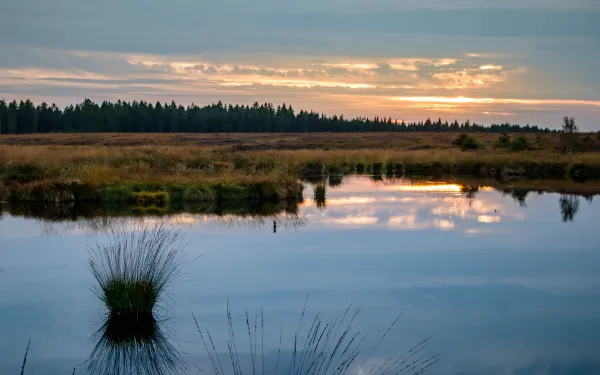
Protecting Wetlands: A Ramsar Infographic
Wetlands worldwide are at threat due to changes in land use, pollution and unsustainable development. The Ramsar Convention is an intergovernmental treaty that works to protect wetlands across international borders, and advocates for their wise use. This infographic breaks down why wetlands are so important, and how the application of the Ramsar Convention can help us protect these sensitive and vital ecosystems.
Read more
Open Letter to States and Development Financiers
On the anniversaries of the United Nations Declaration on the Right to Development (December 4th), the Declaration on Human Rights Defenders (December 9th), and the Universal Declaration of Human Rights (December 10th), civil society groups around the world are drawing attention to the unique threats faced by human rights defenders in the context of megaprojects and other development interventions. Human rights defenders are a critical force for the protection of human rights and integral to the achievement of sustainable development. They are vital to protecting the land and the environment, securing just and safe conditions of work, combating corruption, respecting traditional cultures, and holding governments accountable. Yet those who voice their opinions or seek to shape development and investments are routinely stigmatized as “anti-development,” and subjected to judicial harassment, threats, and violent attacks. Since the adoption of the Declaration on Human Rights Defenders 20 years ago, an estimated 3,500 human rights defenders have been killed because of their peaceful work defending the rights of others. In 2017 alone, at least 312 human rights defenders were murdered, 67 percent of whom were working in defense of land and territory in the context of large investments, extractive industries and big business. Today, the same governments who adopted these important human rights instruments may actually be undermining those efforts through the actions of their national development banks or bilateral and multilateral development cooperation. Where development interventions ignore human rights, or are imposed upon communities without their consent or participation, they often fail to deliver development or alleviate poverty, and instead end up contributing to rights abuses and putting defenders at risk. That is why the Defenders in Development Campaign is calling on development banks, States, and other development actors to honor these human rights anniversaries by highlighting the important role that defenders play in sustainable development and making a public commitment to: Ensure that development interventions support the realization of human rights and avoid abuses, Promote an enabling environment for public participation within development processes, and Take necessary measures to safeguard defenders in the context of development activities. Read the Open Letter signed by over 200 groups Find more information here
Read more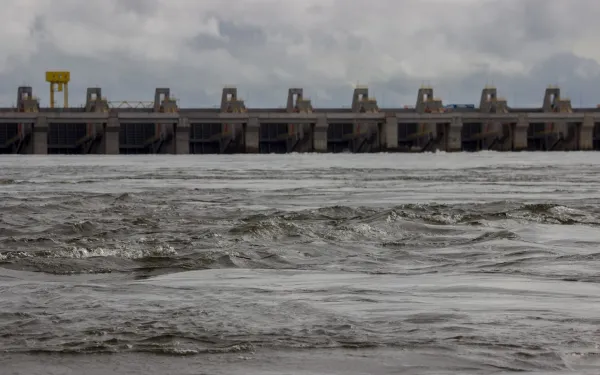
Behind the Dams: BNDES Investments in Belo Monte and Hidroituango
To change, one must understand. To understand, discuss. And to discuss, we present this report. In it, we analyze the application of existing international standards for hydroelectric plants through the lens of two of the most significant investments in the history of the BNDES: Hidroituango and Belo Monte. The analysis reveals evidence and offers conclusions and recommendations to the Bank, as well as to the organizations and communities involved. They are concrete elements to help improve the future performance of the financial institution. We hope that these contributions strengthen the dialogue with the BNDES, and facilitate the identification of options toward greater compliance with the values the bank has adopted, particularly those of transparency and social and environmental responsibility. Read the executive summary Read the complete report in Spanish Download the Executive Summary in Spanish Read the complete report in Portuguese Read the Executive Summary in Portuguese
Read more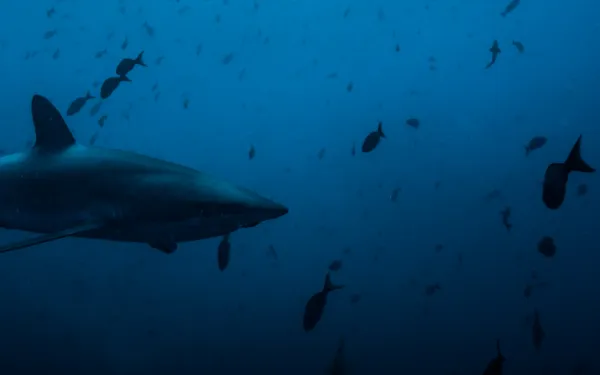
Infographic: Advisory Opinion 23
The Inter-American Court of Human Rights, the Observatory of the Inter-American Human Rights System of the UNAM (OSIDH), the Due Process Foundation (DPLF), AIDA and the Institute of Constitutional Studies of the State of Querétaro present this infographic on the Court's Advisory Opinion 23. The main objective is to make available to all interested persons the main points and standards developed by the Court regarding the obligations of States regarding the environment and its relationship with human rights. We hope that this joint initiative will contribute to the full validity and guarantee of economic, social, cultural and environmental rights in the region. Advisory Opinion 23, issued on November 15, 2017, establishes a historical precedent for the protection of human rights in the continent. Download the infographic in Spanish Download the infographic in Portuguese Download the infographic in French Advisory Opinion (full text) English Spanish
Read more
Open letter to American States on the signing of a regional environmental treaty
Dear Presidents, On 27 September 2018, countries in Latin America and the Caribbean will have the opportunity to put in place a new instrument to protect the environment: The Regional Agreement on Access to Information, Public Participation and Access to Justice on Environmental Matters in Latin America and the Caribbean (the Escazú Agreement). Your governments can make history and become leaders in environmental protection by signing the agreement during the opening for signature ceremony which will be held in the context of the Annual General Debate of the United Nations General Assembly in New York. The Escazú Agreement is a key tool that will allow for a more participatory approach to decision-making, policymaking and projects relating to the environment and decreasing and mitigating conflicts driven by a lack of effective participation of affected communities. The Agreement delves into the human rights obligations that the countries in the region previously acquired through other international instruments with regard to the right of access to public information; participation in decision-making, including the adoption of inclusive, participatory and representative decisions at all levels; the right to a healthy environment; equal access to justice with regard to environmental rights; and the protection of human and environmental rights defenders, among others. These obligations acquired by the countries of Latin America and the Caribbean, together with the commitments made within the framework of the Sustainable Development Goals and other international agreements, reflect a commitment to environmentally friendly development that respect human rights and future generations. In addition, at the 48th General Assembly of the Organization of American States (OAS) in June this year, your governments welcomed the signing of the Escazú Agreement with the acknowledgment that the human person is the central subject of sustainable development and should be an active participant in this. You also acknowledged that the Agreement is a means to guarantee a safe environment in which individuals, groups and organizations that promote and defend human rights related to the environment can act without facing threats, restrictions, attacks or danger. Signing the Escazú Agreement is the first step required to include environmental access rights into the government agenda. It represents a historic opportunity for your governments to send a clear message to your citizens and the international community regarding your firm commitment to this global agenda for the protection of human rights associated with a healthy and sustainable environment. A global agenda that will benefit everyone in the region and around the world. We call on your governments to sign the Escazú Agreement on 27 September 2018 and submit it to the competent national bodies for its immediate ratification. Now is the time to deliver real steps for real change. Latin America and the Caribbean need you to make the promise of the Escazú Agreement a reality for millions of people in the region. We also urge your governments to adopt rapid and effective measures to implement the provisions of the Agreement.
Read more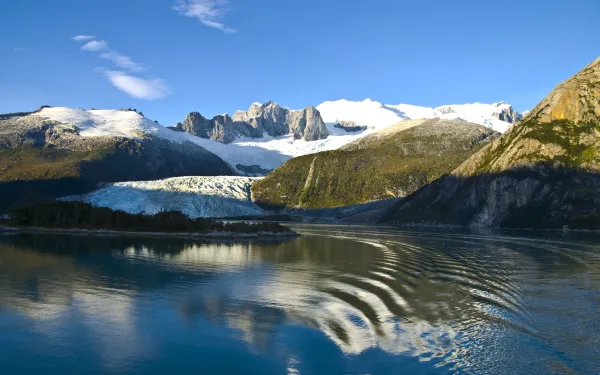
The Risks of the Salmon Industry’s Expansion in Chilean Patagonia
In Chile, the salmon industry has grown rapidly over the last 20 years, often at the expense of the environment, as has been made evident in the regions of Los Lagos and Aysén, where salmon farms have been firmly established. In search of more pristine waters, the industry is now settling into the country’s last virgin coasts, in the region of Magallanes, in Southern Patagonia. The expansion is taking place without scientific evidence or serious studies to establish the limits of production in terms of water capacity. This could have catastrophic consequences for local ecosystems, a fact that has sparked concern among environmental organizations. The purpose of this report, written for AIDA by the biologist Héctor Kol, with the support of the Waitt Foundation, is to contribute to the understanding of the current and potential damages that the industrial production of salmon implies for Magallanes. With this, it also seeks to contribute to the effective protection of the aquatic-marine environment of Patagonia, through the use of existing legal tools. The document presents a detailed analysis of the situation of salmon farms in Magallanes, responding to the following questions: How many exist? Where are they? How much do they produce and in what conditions do they do so? The study includes the farms already authorized by the government and those whose permits are in process. These were divided by geographical sectors to facilitate the analysis. The information on each project includes a location map and estimates of the amount of waste left in the waters, a key aspect to determining their impact on marine life. In this way, the author illustrates the magnitude of the problem. The report also contains basic information on the authorization process for this type of project and on the regulations that exist for the sector, as well as an annex with scientific and legal documents related to each project. The analysis leads to several important conclusions, including the following: Of the 261 projects analyzed, a little less than half have been authorized and the rest could receive their authorizations in the short- and medium- term. This demonstrates the rapid growth of the industry in the region and alerts to the need for constant monitoring, above all of the environmental and sanitary conditions in which they operate. Of the authorized projects only 35 (equivalent to 25 percent of the total) are effectively in operation. There exist, in a same geographic sector and without explanation, large differences in the production and quantity of waste that the government has authorized for different subsectors. This demonstrates the lack of a scientific evaluation that would guarantee the water’s capacity to safely receive the authorized amounts of waste. More than half of the projects currently in operation have generated a total or partial lack of oxygen in the water, which gravely affects marine life. Even more serious is that at least nine of them are located in protected natural areas. This demonstrates that, before operating permits were authorized, adequate studies were not conducted to ensure that the capacity of the waters would not be exceeded by the quantity of fish authorized for breeding. It also means that projects are not subject to appropriate environmental impact assessments. There is not environmental information available for all the authorized projects, which makes it impossible to determine with greater precision the potential damages that the salmon industry could cause in Magallanes. In short, the study concludes that neither the State nor the salmon companies have done enough to prevent the damages already caused by the industry in other regions of Chile, which may now be repeated in one of the country’s most pristine natural areas. Consult and download the complete report (in Spanish) MAP - Salmon farms by geographic area Red icons and polygons: projects with authorized aquaculture concession, approved Technical Project and available environmental assessment (104 in total). White icons and red polygons: projects with authorized aquaculture concession and approved Technical Project, but without RCA or environmental information available (22 in total). Yellow icons and polygons: pending projects, without approved aquaculture concession, but with approved Technical Project (10 in total). Icons and green polygons: pending projects, without approved aquaculture concession and without approved Technical Project, but considered viable by the SUBPESCA (124 in total). View larger map
Read more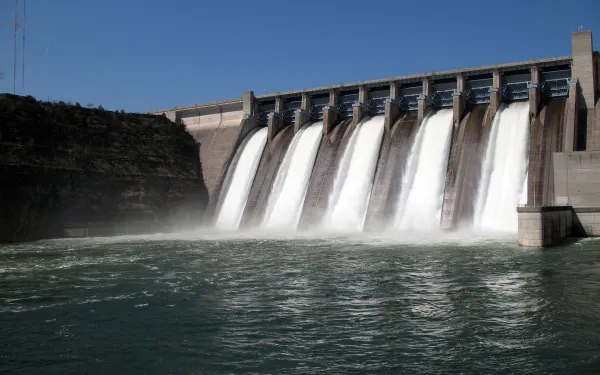
Letter to Argentine legislators on dams in Patagonia
In a letter sent to the Argentine Congress, civil society organizations expressed their concerns about the construction of large dams in Patagonia. The letter outlines recent scientific studies on the impacts of large dams on the environment, the economy, and local communities, and includes information on existing clean energy alternatives. We write out of deep concern for the crossroads facing the Argentine people: protect the immeasurable ecological heritage of Patagonia, or jeopardize Chinese funding for a significant number of infrastructure and energy projects. We understand that this is not a minor issue, and we hope that the Argentine Congress will make use of the Public Hearing on July 20, not only to evaluate in depth the Kirchner-Cepernic Hydroelectric Complex (KCHC), but also to open up a fundamental conversation for Argentina and all of Latin America: on the development of a truly clean, sovereign, and efficient energy model. We take this opportunity to share information on the negative impacts large dams have on the environment and economies of nations, as well as on affected communities; and on existing alternatives that can provide cheaper and more efficient energy. Argentina must not consider itself obliged to alter one of the last pristine areas on the planet, home of the last glacial river that runs freely from mountain peaks to the ocean. There are currently many energy options that are better than hydroelectric dams. Argentina has the opportunity to be a pioneer in the development and implementation of these renewable energy technologies. Worldwide clean energy trends demonstrate this: in 2015, the world added 63 GW of wind energy and 47 GW of solar energy, compared to just 22 GW of energy from large hydropower plants. In some parts of the world, large dams are being dismantled in recognition that their costs outweigh their benefits; and in others, private companies are discarding large dam projects because they are no longer viable or profitable. Furthermore, the United States of America has decided, as a national policy, to oppose any loan, donation, strategy, or policy to support the construction of any large hydroelectric dam. Wind and solar energy are now economically competitive, faster to build and operate, and less vulnerable to a changing climate. In addition, the falling prices of battery storage, accompanied by innovations in smart grid technology, offers ways to resolve the problem of intermittent renewables without the need to construct new large dams. Large hydropower dams are an obsolete technology. They are highly vulnerable to climate change (they can be paralyzed by droughts and may become dangerous in extreme weather events); worsen climate change by destroying carbon sinks and emitting gases from their reservoirs; harm biodiversity and local communities; cost a fortune; and take too long to become operational. Furthermore, the continued promotion of large dams by construction companies—as in the current case linked to Chinese funding—delays the implementation of available and necessary solutions towards the energy transition that our planet needs.
Read more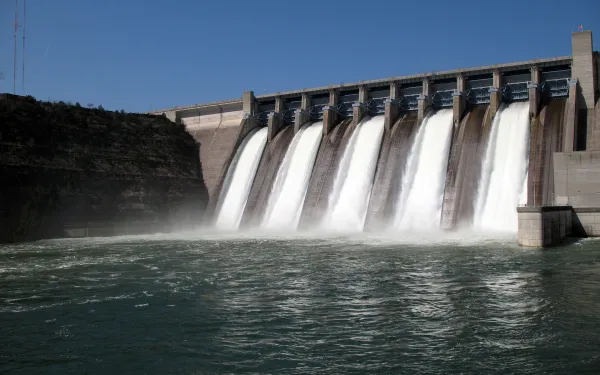
Letter: Concerning the Green Climate Fund and large hydropower
The 282 undersigned organizations write to express our significant concern regarding the use of GCF resources to support large hydropower, and, in particular, the following proposals in the GCF’s pipeline: (i) Qairokkum Hydropower Rehabilitation, Tajikistan; (ii) Upper Trishuli-1, Nepal; and (iii) Tina River Hydro Project, Solomon Islands. The GCF can and should help pay for the incremental costs of renewable energy sources, which are often less “bankable” (though less so all the time). However, we wish to highlight that large dams are different from wind, solar and other technologies because they fail to fulfill the GCF Investment Criteria. For example: (i) Impact potential: Dams emit significant amounts of greenhouse gases, particularly methane, and damage carbon sinks; (ii) Paradigm shift potential: Large hydro is a non-innovative technology that has not seen significant technical or financial breakthroughs in decades; (iii) Sustainable development: Dams have high negative co-impacts with regard to the environment, human rights, and economic cost. By interrupting rivers and flooding lands, they irreversibly harm livelihoods and ecosystems. Because they routinely cost double their estimates, large dams stretch government budgets and increase borrowing costs; (iv) Needs of the recipient: Hydropower projects are particularly vulnerable to climate change, and many countries are already alarmingly over-dependent on hydropower (as is the case with Tajikistan and Nepal). GCF should support efforts in these countries to diversify their energy mix, helping them improve their resilience and adaptive capacities; and, (v) Efficiency and effectiveness: Dams all over the world are losing generation capacity because of climate change-induced droughts. In addition, each of the dam-related projects in the GCF’s pipeline suffers significant deficiencies: Qairokkum Hydropower Rehabilitation: This funding proposal is expected at the April board meeting. The board should reject it. The project aims to extend the life of a Soviet-era dam, built in the 1950s. It is not innovative in any way, deepens Tajikistan’s already alarming overdependence on climate-vulnerable hydro, and fails to address critical environmental problems of the original dam, among other concerns. Upper Trishuli-1: Though not up for consideration at the April board meeting, Upper Trishuli has been in the project pipeline for many months and should be expeditiously removed from it. With more than 30 hydro projects either operating, in construction, or planned on the Trishuli River, the project would have no transformational impact. It faces severe climate and disaster risks, would deepen Nepal’s overdependence on climate-vulnerable hydro, and would have significant impacts on indigenous communities and the environment that have not been adequately studied or addressed. There is also no assessment of the project’s vulnerability to earthquakes, despite the area being highly seismic. Tina River Hydro Project: Expected at the April board meeting, this 15 MW project is intended to reduce the Solomon Islands’ reliance on imported diesel. The project does not include an assessment of climate vulnerability, threatens a world-class biodiversity hotspot, and is very costly. Meanwhile, Solomon Islands has considerable renewable energy potential that has not been sufficiently studied. These issues and others are detailed in a letter sent previously to the Board. Thank you for your attention to this most important matter. We look forward to working with you and the Secretariat to ensure that the GCF is a transformational institution of the highest social and environmental caliber. That cannot be accomplished if the GCF finances large hydropower.
Read more